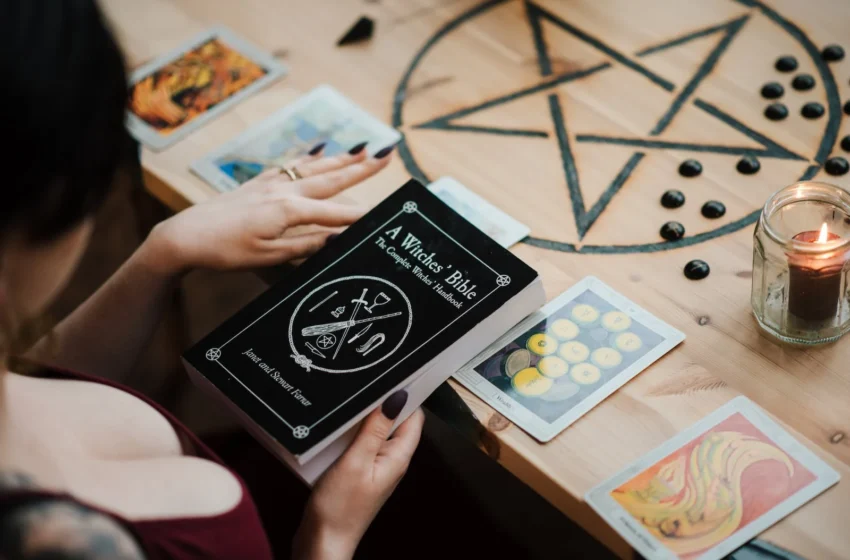Spell casting, an ancient art rooted in various cultural and mystical traditions, has captured the imagination of humanity for centuries. At the heart of spell casting lies the spell caster, an individual who harnesses the power of intention, energy manipulation, and ritual practices to influence and manifest desired outcomes. In this article, we delve into the multifaceted world of spell casters, exploring their role, practices, and the diverse perspectives surrounding their craft.
Defining a spell caster
A spell caster is an individual who possesses knowledge, skills, and expertise in the realm of magic and spellcasting. They are practitioners who work with energetic forces, rituals, symbols, and various tools to direct intention and manipulate energy for the purpose of manifesting specific outcomes. Spell casters may draw upon different magical traditions, such as Wicca, Hoodoo, or ceremonial magic, each with its unique practices and belief systems.
Roles and practices of spell casters:
Intention and manifestation: Spell casters specialize in setting clear intentions and utilizing ritual practices to manifest desired outcomes. They work with symbolism, visualization, and focused intention to align their energy with the desired result, aiming to create a shift in the energetic fabric of reality.
Energy manipulation: Spell casters have an understanding of energy manipulation techniques, which involve directing and harnessing energy for specific purposes. They may utilize methods such as visualization, energy raising, chanting, or the use of specific tools to amplify and direct energy towards their intentions.
Rituals and ceremonies: Spell casters often perform rituals and ceremonies as a means to create sacred space and connect with spiritual forces. These rituals may involve the use of candles, herbs, crystals, incense, or other symbolic elements, depending on the tradition and intention of the spell. The repetition of rituals helps create a focused mindset and enhances the energy of the spell.
Knowledge and study: Spell casters typically have a deep understanding of metaphysical concepts, symbolism, correspondences, and magical systems. They often engage in continuous learning, studying ancient texts, exploring esoteric wisdom, and developing a comprehensive knowledge of magical practices and traditions.
Ethics and responsibility: Responsible spell casters emphasize ethical considerations and personal responsibility. They understand the importance of practicing magic with integrity, avoiding harm to others, and respecting the principles of free will. Ethical spell casters prioritize consent, respect for boundaries, and use their skills for positive transformation and personal growth.
Perspectives and diversity
It is crucial to acknowledge the diversity of perspectives within the world of spell casting. Beliefs and practices can vary widely among individuals who identify as spell casters. Some view spell casting as a form of psychological transformation, utilizing symbolism and ritual to shift their mindset and manifest desired changes. Others may embrace a more metaphysical perspective, believing in the manipulation of subtle energies to influence reality. The motivations, beliefs, and approaches of spell casters can vary greatly, reflecting the richness and complexity of human spirituality and magical practices.
The power within and personal empowerment
Spell casting is often regarded as a means of personal empowerment and self-discovery. Spell casters encourage individuals to take an active role in their lives, using magic as a tool for introspection, transformation, and manifesting their desires. By accessing their own innate power, individuals can cultivate a sense of agency, spiritual connection, and the ability to shape their reality in alignment with their intentions.
Spell casters embody the mysticism, ancient wisdom, and transformative power of magic. Through their knowledge, practices, and understanding of energy manipulation, they work to manifest desired outcomes in alignment with their intentions. The diverse perspectives and practices within the world of spell casting reflect the individuality and spiritual journey of each practitioner. Ultimately, spell casters offer a pathway to personal empowerment, self-discovery, and the exploration of the interconnectedness between the mundane and the mystical realms.
4 characteristics of an effective spell caster
Spell casting is an ancient art that requires knowledge, skill, and a deep understanding of mystical practices. Within the realm of magic, effective spell casters possess specific characteristics that enable them to manifest desired outcomes and navigate the intricate world of metaphysics. In this article, we explore four key characteristics that contribute to the effectiveness of a spell caster, highlighting the qualities that define their craft and shape their impact.
Knowledge and expertise
An effective spell caster demonstrates a comprehensive understanding of magical principles, symbolism, and metaphysical concepts. They invest time in studying ancient texts, exploring various magical traditions, and deepening their knowledge of esoteric wisdom. By mastering different magical systems, correspondences, and ritual practices, spell casters can confidently choose and adapt spells to align with specific intentions. Their expertise allows them to work with precision, ensuring the right techniques and tools are utilized to amplify the energy and focus of their spells.
Intuition and sensitivity to energy
Intuition plays a vital role in the work of an effective spell caster. They possess a heightened sensitivity to energy, allowing them to discern subtle shifts, vibrations, and energetic patterns. This intuitive awareness helps them attune to the energy of their clients or the situation at hand, facilitating the customization of spells to suit individual needs. An effective spell caster can harness and direct energy with precision, intuitively sensing the alignment required for successful outcomes.
Ethical considerations and responsibility
Ethical considerations are paramount for an effective spell caster. They approach their craft with a strong sense of responsibility, emphasizing the principles of harmlessness, consent, and respect for free will. Ethical spell casters understand the potential impact of their work on individuals and society as a whole. They prioritize the well-being and autonomy of their clients, ensuring that their spells are used for positive transformation, personal growth, and the greater good. By operating with integrity and ethical standards, an effective spell caster fosters a safe and empowering environment for their clients.
Empathy and compassion
Effective spell casters possess a genuine empathy and compassion for the individuals seeking their assistance. They understand the emotional and spiritual needs of their clients, providing a supportive and non-judgmental space for exploration and transformation. By connecting with the emotions and desires of those they serve, spell casters can craft spells that resonate deeply and address the underlying needs of the individual. This empathy creates a strong rapport between the spell caster and the client, enhancing the effectiveness of the work and fostering a sense of trust and empowerment.
Conclusion
The effectiveness of a spell caster is shaped by a combination of knowledge, intuition, ethics, and empathy. Mastery of magical principles, symbols, and rituals provides a foundation for crafting potent spells. Intuition and sensitivity to energy allow for a deep understanding of the energetic dynamics at play, enabling alignment and precision in spell work. Ethical considerations guide the spell caster to operate with integrity and respect for the well-being and autonomy of their clients. Empathy and compassion create a supportive environment that enhances the transformative power of their work. These four characteristics come together to define an effective spell caster, someone who navigates the realms of magic with skill, responsibility, and a deep commitment to empowering others on their spiritual journey.


